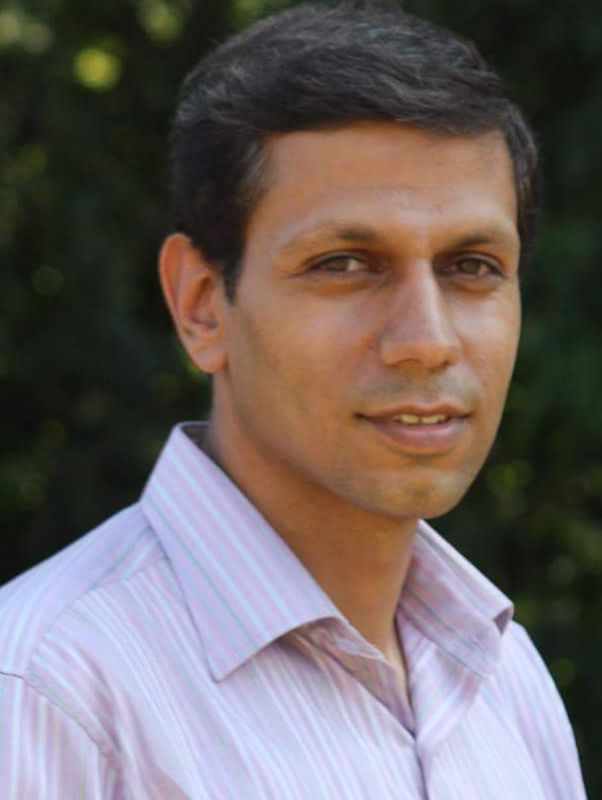- 19 views
Monday, March 19, 2018 - 10:15 am
Innovation Center, Room 2277
 COLLOQUIUM
Sayed Ahmad Salehi
Abstract
With the recent advances in the field of synthetic biology, molecular computing has emerged as a non- conventional computing technology and a broad range of computational processes has been considered for molecular implementation. In contrast to electronic systems where signals are represented by time-varying voltage values, in molecular computing systems signals are represented by time-varying concentrations of molecular types. The field aims for the design of custom, embedded biological “controllers” – DNA molecules that are engineered to perform useful tasks in situ, such as cancer detection and smart drug therapy.
The past few decades have seen remarkable progress in the design of integrated electronic circuits for digital signal processing and other forms of computation. Nowadays, in terms of circuit complexity, the pace of progress in biotechnology is similar to, even faster than, integrated circuits; it’s like a golden age of molecular circuit design. This seminar presents how the knowledge and expertise in circuit design can be applied and extended to the domain of molecular computing. The talk has two main parts. First, some frameworks are explained for the development of molecular systems computing signal processing operations such as frequency filters. Second, a new molecular encoding, called fractional coding, is introduced to map digital stochastic computing circuits into molecular circuits. Based on this approach, molecular computation of complex mathematical functions and a single-layer neural network (perceptron) is described.
Dr. Sayed Ahmad Salehi received his MSc. and Ph.D. in Electrical and Computer Engineering (with minor in Computer Science) from the University of Minnesota in 2015 and 2017, respectively. Dr. Salehi is currently an assistant professor in the Computer Science and Engineering Department at Utah Valley University. His research interests include low-power VLSI architectures for signal processing, embedded systems, stochastic computing, and molecular (DNA) computing. He is the recipient of the University of Minnesota Doctoral Dissertation Fellowship in 2016 and the finalist for the best paper award in DSP2015 conference.
Date: Mar. 19 2018
Time: 10:15-11:15 am
Place: Innovation Center, Room 2277
COLLOQUIUM
Sayed Ahmad Salehi
Abstract
With the recent advances in the field of synthetic biology, molecular computing has emerged as a non- conventional computing technology and a broad range of computational processes has been considered for molecular implementation. In contrast to electronic systems where signals are represented by time-varying voltage values, in molecular computing systems signals are represented by time-varying concentrations of molecular types. The field aims for the design of custom, embedded biological “controllers” – DNA molecules that are engineered to perform useful tasks in situ, such as cancer detection and smart drug therapy.
The past few decades have seen remarkable progress in the design of integrated electronic circuits for digital signal processing and other forms of computation. Nowadays, in terms of circuit complexity, the pace of progress in biotechnology is similar to, even faster than, integrated circuits; it’s like a golden age of molecular circuit design. This seminar presents how the knowledge and expertise in circuit design can be applied and extended to the domain of molecular computing. The talk has two main parts. First, some frameworks are explained for the development of molecular systems computing signal processing operations such as frequency filters. Second, a new molecular encoding, called fractional coding, is introduced to map digital stochastic computing circuits into molecular circuits. Based on this approach, molecular computation of complex mathematical functions and a single-layer neural network (perceptron) is described.
Dr. Sayed Ahmad Salehi received his MSc. and Ph.D. in Electrical and Computer Engineering (with minor in Computer Science) from the University of Minnesota in 2015 and 2017, respectively. Dr. Salehi is currently an assistant professor in the Computer Science and Engineering Department at Utah Valley University. His research interests include low-power VLSI architectures for signal processing, embedded systems, stochastic computing, and molecular (DNA) computing. He is the recipient of the University of Minnesota Doctoral Dissertation Fellowship in 2016 and the finalist for the best paper award in DSP2015 conference.
Date: Mar. 19 2018
Time: 10:15-11:15 am
Place: Innovation Center, Room 2277